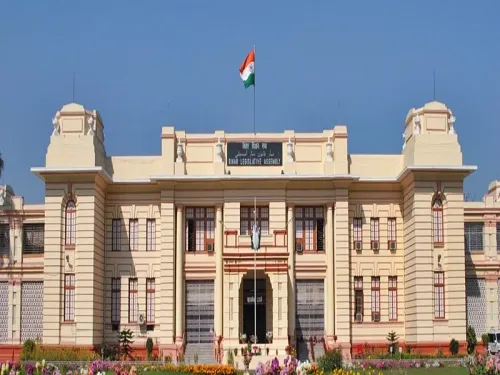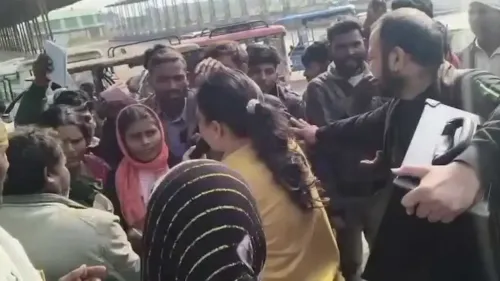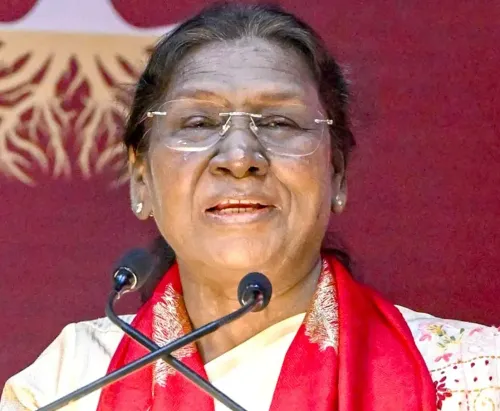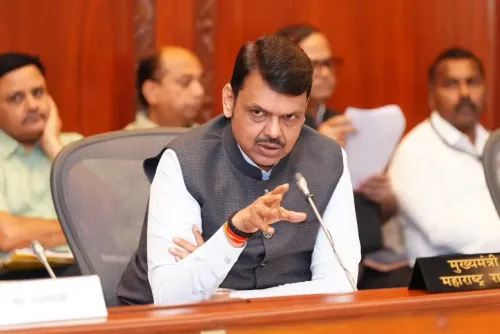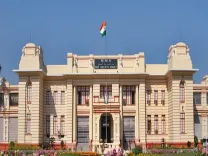Terrorism Will Not Prevail: Rishi Sunak Denounces Attack in Pahalgam, J&K
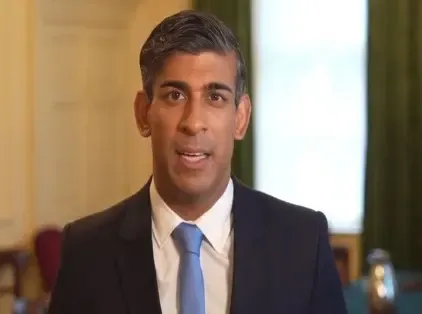
Synopsis
Key Takeaways
- Rishi Sunak condemns the Pahalgam attack.
- India's Cabinet Committee on Security met to discuss implications.
- Strong international support against terrorism.
- India takes significant diplomatic measures against Pakistan.
- Indus Waters Treaty suspended as a response.
London, April 24 (NationPress) Former UK Prime Minister Rishi Sunak on Wednesday condemned the "barbaric attack" in Jammu and Kashmir's Pahalgam, which he stated had taken the innocent lives of individuals and families in search of joy.
He emphasized that "Britain stands in solidarity with India during this time of grief and sorrow" and declared that "terror will never win".
In a post on the social media platform X, Sunak remarked: "The barbaric attack in Pahalgam has stolen the lives of newlyweds, children, and families simply seeking joy. Our hearts break for them. To those mourning - know that the UK stands with you in sorrow and solidarity. Terror will never win. We grieve with India."
The Peruvian Foreign Ministry also expressed its condemnation on X: "Peru expresses its strongest condemnation of the terrorist attack that occurred yesterday in the town of Pahalgam, Jammu and Kashmir, which left 26 people dead. It also expresses its deepest condolences to the victims' families."
The Ministry further stated: "Peru calls on the international community to redouble efforts to combat and eradicate terrorism in all its forms and expresses its solidarity with the Indian government."
Margareta Cederfelt, a Swedish politician from the Moderate Party, wrote on X: "We, The Swedish-Indian Parliamentary Friendship Group, are deeply saddened and strongly condemn the brutal #TerroristAttack in Pahalgam, Jammu and Kashmir. There can be no justification for such atrocities. We extend our condolences to the victims' families #India."
In a decisive response to the deadly terror attack on April 22 in Pahalgam, Jammu and Kashmir, India has taken a series of robust diplomatic measures to hold Pakistan accountable for its role in cross-border terrorism.
The Cabinet Committee on Security (CCS), chaired by Prime Minister Narendra Modi, convened on Wednesday evening to discuss the implications of the attack, which claimed the lives of 25 Indian nationals and one Nepali citizen, with several others sustaining injuries.
The CCS expressed strong condemnation of the attack and offered heartfelt condolences to the families of the victims, wishing for the swift recovery of those injured. The attack, which targeted tourists in a popular destination, was attributed to Pakistan-backed terror groups, sources reported.
India has also received strong expressions of support from governments worldwide, condemning the attack and reaffirming their commitment to zero tolerance for terrorism.
The meeting also noted that the attack occurred against the backdrop of successful elections in Jammu and Kashmir and the region's ongoing progress toward economic development and stability. These achievements, India believes, are viewed as a threat by terrorist factions seeking to destabilize the region.
Recognizing the seriousness of this attack and its cross-border linkages, the CCS implemented the following unprecedented measures:
Indus Waters Treaty suspended – In one of the most significant decisions, India has placed the Indus Waters Treaty of 1960 in abeyance with immediate effect. This historic move effectively halts decades of cooperation on water-sharing between India and Pakistan. The decision will remain in force until Pakistan takes credible and irrevocable steps to cease its support for cross-border terrorism.
Closure of Attari Integrated Check Post – In direct response to the terrorist attack, India has announced the immediate closure of the Integrated Check Post (ICP) at Attari, which serves as a vital border crossing between the two nations. Indian authorities have granted Pakistani nationals with valid travel endorsements until May 1, 2025, to return to Pakistan through this route. After this deadline, all land travel between India and Pakistan will be completely suspended.
Cancellation of SAARC Visa Exemption Scheme for Pakistani Nationals – In another strong step, India has decided that Pakistani nationals will no longer be allowed to travel to India under the SAARC Visa Exemption Scheme (SVES). Any SVES visas previously issued to Pakistani nationals have been cancelled, and those currently in India under this scheme have been given 48 hours to leave the country.
Persona Non Grata Declaration for Pakistani Diplomats – In a sharp diplomatic move, India has declared Pakistan’s Defence, Military, Naval, and Air Advisors in the Pakistani High Commission in New Delhi as Persona Non Grata. These officials have been given one week to leave India.
India also announced the withdrawal of its own Defence, Navy, and Air Advisors from the Indian High Commission in Islamabad, with all such posts deemed annulled. Moreover, five support staff of these service advisors will also be withdrawn from both High Commissions.
Reduction in Diplomatic Staff – In a further diplomatic escalation, India has decided to reduce the overall strength of the Indian High Commission in Islamabad and the Pakistani High Commission in New Delhi. The two embassies will be cut to a staff strength of 30, down from the current 55. This reduction will be implemented by May 1, 2025.
The CCS also reviewed the overall security situation and directed all Indian forces to maintain the highest level of vigilance. India has resolved to ensure that the perpetrators of the Pahalgam attack are brought to justice and that their sponsors will be held accountable. In line with its unyielding approach to combating terrorism, India reaffirmed its commitment to pursuing those responsible for terror attacks, referencing recent high-profile extraditions like Tahawwur Rana.
India's diplomatic actions signal a shift toward total isolation of Pakistan until it ceases its support for terrorism. The measures reflect the government's resolve to push back against Pakistan’s continued involvement in fomenting violence on Indian soil, and to send a clear message to the international community that terrorism will not be tolerated.


